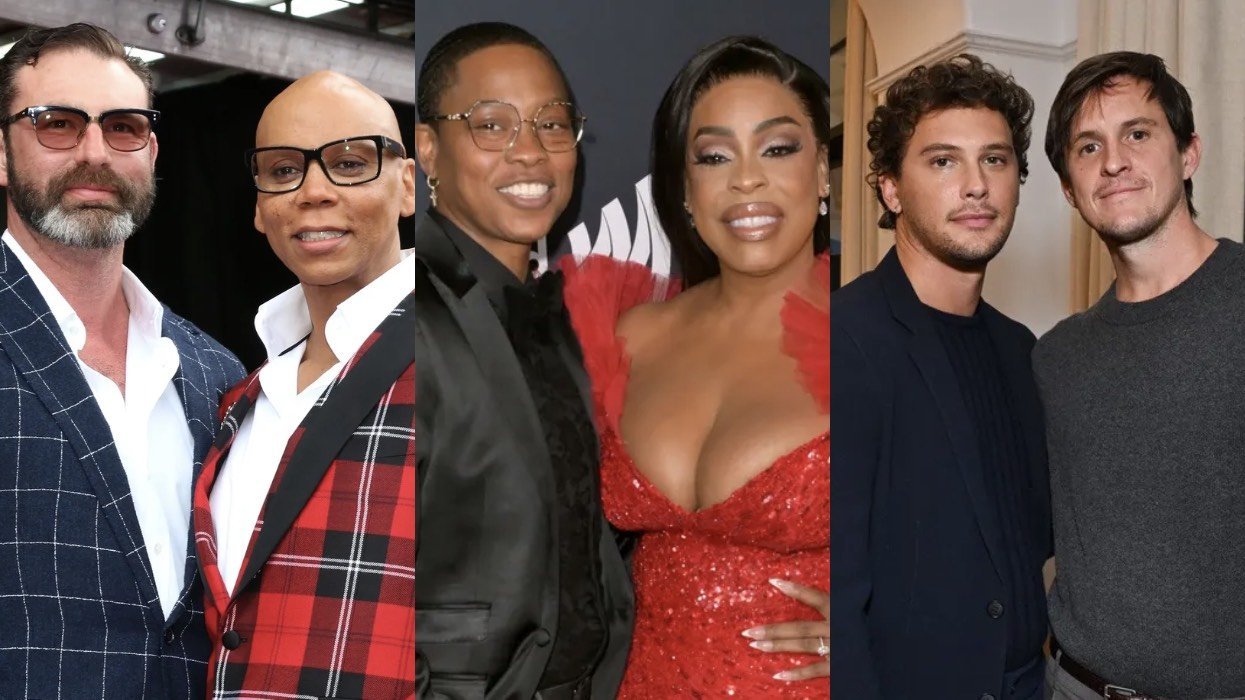I finally realized why I was so bored during the latest Coen brothers film, A Serious Man: it's yet another version of the Beleaguered White Guy Narrative. Whether it's Jim Halpert from The Office or Larry Gopnick from A Serious Man, the story goes something like this: a well-meaning, more or less attractive, more or less competent, decently heterosexually masculine and in all other respects completely normal White Guy navigates the complex and irrational world of work, dating, family, and social life. All of these things somehow conspire to ruin his otherwise harmless existence and noble-in-its-simplicity normal guy happiness. The lamentably Beleaguered White Guy gets along as well as he can and is the understated yet sympathetic hero of the story.
Of course, the White Guy Protagonist is nothing new. What's changed is that he is Beleaguered (rather than, say, Homicidal, like Michael Douglas in the 1993 angry white man film, Falling Down). The lesson, however, is the same - the White Guy is undeservedly beaten down by people (usually women and people of color, but also undeserving superiors and arrogant colleagues) or forces (the chain of command at work, anonymous bureaucracies that fail to recognize his personal worth-think Office Space here) that unwittingly conspire to make his life uniquely and unjustly miserable.
Ron Livingston in Office Space
Larry Gopnick is the Beleaguered White Guy. A well-meaning professor on the verge of tenure, the bulk of the film consists of an endless parade of people and forces that collude to render his life unlivable. There is his unfaithful, money-grubbing wife who asks him for a divorce. There are his bickering children, a pothead son obsessed with TV and a superficial teenage daughter who cares only about washing her hair and - you vey, they do indeed invoke this utmost of clichés about Jewish girls - getting a nose job. There is his burdensome and mentally slow brother, Arthur, who spends his time draining a large cyst on the back of his neck and getting arrested for gambling and sodomy. There is his Korean student, Clive, who tries to bribe Gopnick for a passing grade in his class. Finally (and I am only listing the major sources of Gopnick's despair), there is the series of moronic and empty rabbis who dispense nonsense in the guise of wisdom when Gopnick seeks their counsel to help navigate his despair.
more on next page...
\\\
(continued)
A Serious Man is all-too-knowing about the people that conspire to make Gopnick miserable, portraying them to comic effect. But my boredom and irritation with the Beleaguered White Guy Narrative isn't about either its sincerity or its potential for parody. Rather, I dislike its politics. For the humor of Gopnick's situation turns on his being a Beleaguered White Guy - a White Guy who doesn't deserve the difficult people and problems he is saddled with. So while Gopnick might be kind of dorky or wear high-waters or be a bit foolish, what's pretty clear in a film that otherwise tries constantly to frustrate viewer certainty is that Gopnick is not really responsible for his own suffering. He repeatedly fixes the TV antenna so his son can watch the channels he wants. He earnestly seeks help from rabbis who have nothing to say to him, and tries diligently to extricate himself from the situation with his misguided student, Clive.
Michael Stuhlbarg in A Serious Man
Indeed, just so we're aware of what a good guy he is, Gopnick even moves out of the family home to accommodate his wife's new lover (later, when the lover dies, Gopnick even pays for the funeral). His only weakness, if such it can be called, is to spy on the neighbor lady as she sunbathes nude, an understandably male reaction to naked female flesh and a paltry reward for the suffering he has thus far endured. Bumblingly pursuing his completely normal masculine urges, Gopnick visits the neighbor lady to offer his appropriately masculine handyman services, since he's noticed her husband isn't around much. "He travels," she tells him in a husky voice, exhaling cigarette smoke into his eyes.
Now, just like Jim of The Office and even, dare I say it, Jon Stewart of The Daily Show at times, the White Guy Protagonist is more palatable today because his hostility toward those who are not him has been transformed from Rage to Beleaguerment.
John Krasinski in The Office
This Beleagerment is also often packaged in ironic self-reflection, a gimmick American audiences can't seem to get enough of. In rare cases, he is the subject of critique, as with Jimmy McNulty on The Wire, who is relentlessly implicated in his own immaturity. But even when depicted critically, the Beleaguered White Guy remains sympathetic and we are still somehow supposed to care about what happens to him. Moreover, the irony and self-reflection of the lighter versions of the Beleaguered White Guy simply function to excuse his otherwise irritating and narcissistic behavior (Woody Allen, anyone?).
more on next page...
\\\
(continued)
Jon Stewart
The thing is, White Guys are not, in fact, Beleaguered. The Beleaguered White Guy, for all his irony, detachment, and self-critique, remains the face of power in social life, and for all his ostensibly undeserved burdens, he wields an enormous amount of social, cultural, and economic power. Making him Beleaguered (much less Jewish and nebbishy) does not erase the power Gopnick in fact possesses in 1960s America, nor does it overwrite his continuing privilege today. In fact, being the default norm of culture may be the best evidence of current configurations of social power. After all, what makes the norm "normal" is its invisibility as the norm (or, as I like to think of it, as Norm - a now-Beleaguered White Guy). To see this White Guy as the victim who suffers from the plagues of women, children, queers, and people of color - to buy, in other words, the Beleaguered White Guy Narrative - is to get sold a bill of goods in place of actually compelling artistic and cultural critique.
Recycling this mythology in an ironic or pseudo-critical way just puts a comic spin on the same old racism, sexism, and homophobia with which we’re already familiar. So Gopnick’s wife is a money-grubbing shrew, while the sexy neighbor lady with the absentee husband has nothing better to do than wait inside her empty house for Gopnick to drop by and offer her his “services” (of course! It’s so plausible!). Gopnick’s big problem student is the only person of color in the entire film. Clive’s and his father’s attempt to bribe Gopnick for a passing grade are ascribed to an all-too-predictable cultural belief about shame that, to Gopnick, is akin to superstition in its irrationality.
Then there is Gopnick’s mentally slow brother Arthur, who is a twofer in being both disabled as well as a potentially closeted homosexual. In perhaps the most compelling performance in the film, Richard Kind does what he can to humanize Arthur, the giant lumbering man-child who seems to exist primarily to burden Larry with yet another undeserved responsibility. But again, as with the criminal student who just happens to be non-white, here we have a potentially gay character, who just happens to be disabled. You tell me what kind of unconscious cultural associations that reveals.
Before A Serious Man began, the theater showed a preview for Lee Daniels' new film, Precious. In his New York Times Magazine 10/25/09 interview, Daniels said he had a hard time convincing potential funders that a story about a 350-pound abused black girl would be worth their time and money. Daniels' experience confirms my argument here. Larry Gopnick's life has been deemed interesting, worthwhile, meaningful, and important, while Precious's life is presumed from the outset to be the opposite. Not only this, but according to the Beleaguered White Guy Narrative, Larry Gopnick's life is burdened by lives like Precious's. This is the punchline, the comic relief of this bogus story.
Gabby Sidibe in Precious
Personally, I'm sick of the Beleaguered White Guy Narrative, and I'm tired of hearing about his supposed travails. I'm fed up with the conflation of his perspective with cultural truth. I think it's time we ditch this narrative. Let's start disentangling Norm from the norm and tell some new stories-stories that don't simply repackage the same person and perspective who has been running the show all along.
Follow SheWired on Twitter.
































































































































